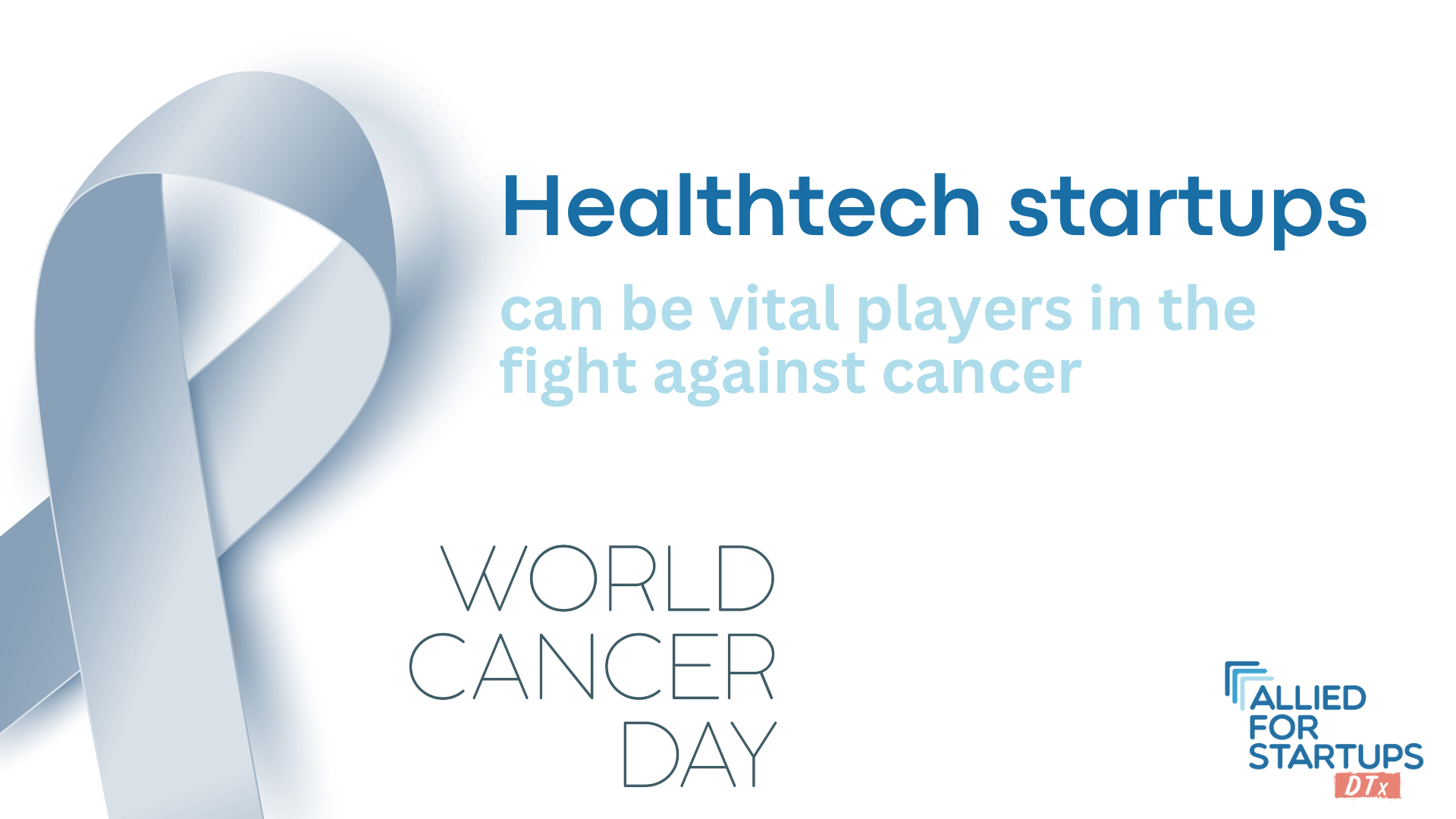Healthtech startups can be vital players in the fight against cancer
Cancer is the leading cause of death worldwide, accounting for nearly 10 million deaths every year. However, evidence has shown that 40% of cancers are preventable. With breakthrough advances in cancer research and innovation, there are an increasing number of treatments and care. Startups can play a key role in the development of patient-centric solutions to cancer – and if included in existing policy initiatives, could make these strategies even more impactful in tackling this public health problem.
Europe’s Beating Cancer plan aims to prioritize digitalization, research, and innovation. This includes the creation of the European Cancer Patient Digital Centre to support the voluntary exchange of patients’ data, a new Knowledge Centre to coordinate scientific initiatives; and the Cancer Imaging Initiative aiming to support healthcare providers, research institutes, and innovators in making the best use of innovative data-driven solutions for cancer treatment and care, such as AI-powered, privacy-preserving diagnostic tools.
The MEPs Against Cancer (MAC) Interest Group was founded in 2005 by a group of committed MEPs. Its mission is to pursue innovative cancer policies in the EU by promoting a health approach in all policies and including all stakeholders, especially patients, in EU decision-making processes. At Allied for Startups, we believe that including multi-stakeholder perspectives throughout the policy-making process is key to creating sustainable regulation inclusive for all players involved. Key stakeholders within this conversation are startups – who continue to develop cutting-edge cancer technologies and solutions to save lives, improve the quality of life of cancer patients and survivors, and support stakeholders along the cancer-care continuum.
The European Commission’s proposal for a European Health Data Space is an opportunity to enable EU-wide collaboration for better healthcare, research, and innovation in the fight against cancer, as it has the potential to introduce common standards and provide access to secondary health data.
On the occasion of World Cancer Day, we encourage policy makers to bank on startups for health strategies and point out clear pathways for digital health communities to continue contributing to Europe’s fight against cancer.

